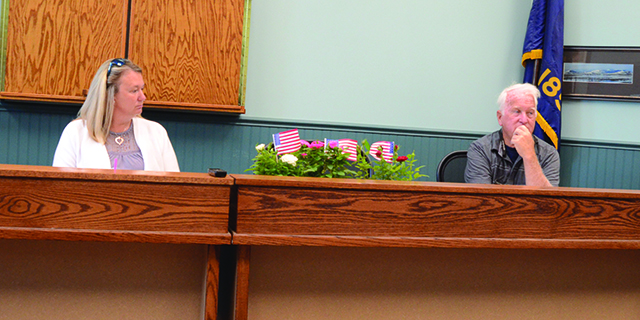Crying wolf on science
Published 2:43 am Tuesday, March 22, 2016
Wolves have recovered dramatically in Oregon, their numbers growing into the triple digits and their populations expanding west and south across a large swath of the state.
The Oregon Wolf Plan shepherded the success of that re-introduction. And because the next step in the plan called for taking gray wolves off the state’s endangered species list, that’s exactly what happened.
Trending
In a staff report released in October 2015, scientists from ODFW recommended the Oregon Fish and Wildlife Commission delist gray wolves. In November, OFWC agreed with that assessment. And just last month both houses of the state legislature voted to affirm the OFWC’s decision. That affirmation now sits at the desk of Governor Kate Brown.
If Brown vetoes the bill, it would be just another slap in the face of rural Oregon.
Out here in wolf country, we’ve lived by the rules of the Oregon Wolf Plan since the wily animals swam across the Snake River and made this country their home. And many of us are happy about that. Wolves belong in Oregon, and their existence must be protected.
But with existence now reasonably secured, species management is needed. And we should make those management decisions using unbiased science, not science paid for by special interests. And we should definitely not make those decisions by discarding science altogether and substituting emotion, or the highest paid lawyer.
But that’s what environmental groups such as Oregon Wild, Cascadia Wildlands and the Center for Wildlife Diversity are trying to do. These litigants are undercutting the work that ODFW has done to revive wolf numbers and the science that has fueled it.
“The place where (the delisting decision) needs to be determined is in a court of law,” Amaroq Weiss, Center of Biological Diversity, told Oregon Public Broadcasting.
Trending
But a courtroom is not where science happens, and it is the wrong place for management decisions to be made.
The place where wolf management decisions should be made is in the field. It’s in the laboratory. It’s in the reams of data in the hands of a wolf biologist. It’s by the decisions of an apolitical, informed commission who studies the science.
That work has been done, yet it has been disregarded by environmental groups who don’t agree with the conclusion.
That’s not the way science works. It’s a shame that some of the state’s most well-funded and powerful environmental groups don’t believe in science that is not their own.
Those groups are putting pressure on the governor to veto a bill that passed, somewhat miraculously, through a Democratically controlled Legislature to land on her desk.
It’s not a one-sided trick, either. There are many who point to the scientist they paid for who has found the climate isn’t changing, smoking doesn’t cause cancer, that coal is clean and Arctic drilling is good for the polar bear.
It’s a disreputable group to be part of, and one that hurts your credibility in the eyes of people who just want what is best for our state and its wildlife. You cry wolf too many times and there might not be any wolves left to hear you.









